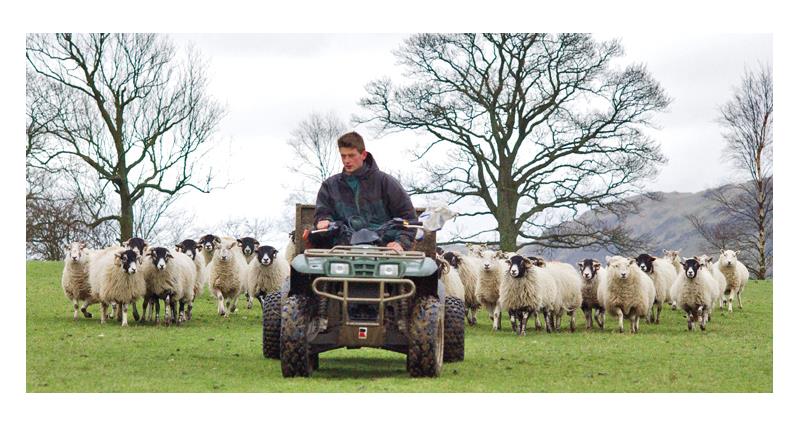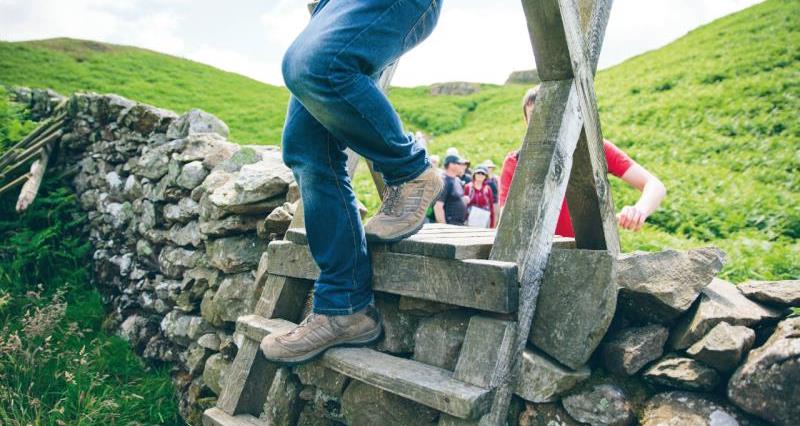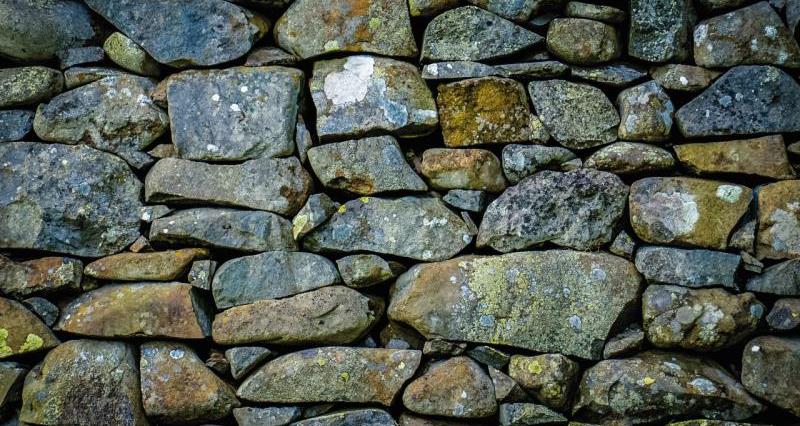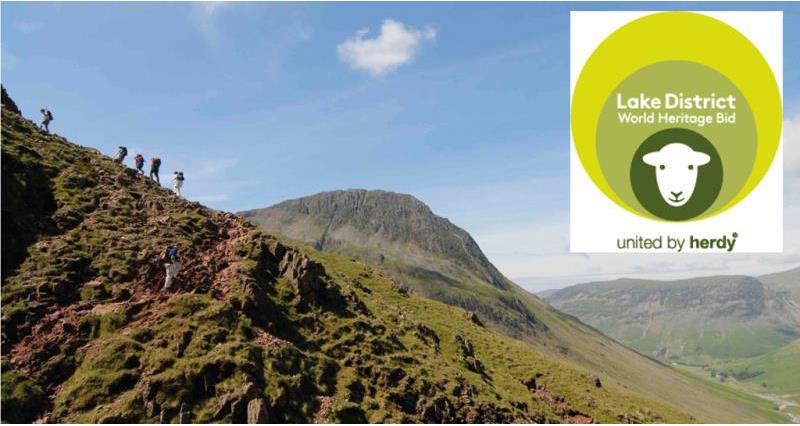Talk to a Cumbrian farmer about the World Heritage Bid though and opinions will be scarce, never mind positive. Awareness of the World Heritage Bid and the potential benefits is low in the county’s farming community – but is now the time for the agricultural industry to step up and vocally back it?
Although an official supporter, the NFU has admittedly taken a cautionary approach to overtly supporting the bid, unsure about the impact on our farming members and perhaps a little fearful of their scepticism.
However, discussions have taken place to identify how World Heritage Site status can be used to help market and attract a price premium for Cumbrian produce, how more local food can be sold to the millions of tourists who visit the area each year, and how the value from processing produce can be kept within the county.
And a quick glance at the bid’s website (lakesworldheritage.co.uk) shows farming is a vital component if the Lake District is to receive worldwide recognition, allowing it to stand as an equal alongside the Taj Mahal, the Tower of London and the Great Barrier Reef.
Organisers of the World Heritage Bid argue the farming community will enjoy increased recognition of the cultural role of farming and its integral role with the landscape – the NFU hopes they are correct.
NFU Regional Director, David Hall, said: “Benefits for achieving World Heritage Site status could take five to ten years to be felt but that doesn’t mean we shouldn’t collectively back the bid. For over a thousand years, farming has shaped the Lake District landscape and still defines the character of the area today. UNESCO officials have already visited Cumbria and were impressed with what they saw. UNESCO is keen that farmers are integral to the bid. They don’t want plastic shepherds and sheepdogs.”
The World Heritage bid highlights shepherds meets, local dialect and traditional shows and sports, as well as the area’s indigenous breeds of sheep. It places emphasis on the distinctive approach to farming Common Land in the Lake District, the area’s small in bye and intake fields and centuries old dry stone walls.
However, the case to be a World Heritage Site is not based on farming alone. Submitted in the category of ‘cultural landscape’, it is about the relationship between farming and industry in shaping the land, and then in turn how this landscape has inspired poets and artists of the Picturesque and Romantic movements from the late 18th century and conservationists from the 19th century.
The cultural landscape continues to inspire the millions who seek out what captivated Wordsworth, Ruskin and Beatrix Potter.
Will Rawling, NFU member and chairman of the Herdwick Sheep Breeders' Association, said: “I do think this World Heritage Site bid does at last, reflect the huge benefit of commercial farming to the Lake District National Park. The cultural heritage, on which the bid is based, needs the people on the ground to make it real. The tourists who flock to the lakes come to see a working, ever evolving, landscape producing high quality food and environmental management. The sheep and cattle alongside those who looked after them made the area what it is and they continue to keep it looking the way that it does. This bid needs farmers, we should all support it.”
Who is involved?
The project has been funded by a range of local and national organisations: Carlisle City Council, Cumbria County Council, Cumbria Vision, Eden District Council, English Heritage / Historic England, Forestry Commission, Friends of the Lake District, Lake District National Park Authority, The National Trust and Natural England.
Private sector sponsors have included: The Lake District Cheese Co, NatWest and United Utilities.
The Lake District World Heritage Project is a partnership of local and national organisations which are represented on the project steering group. These are: Allerdale Borough Council, Barrow Borough Council, Brantwood, Cumbria Association of Local Councils, Carlisle City Council, Copeland Borough Council, Country Land and Business Association, Cumbria County Council, Cumbria Rural Enterprise Agency, Cumbria Tourism, Defra, Eden District Council, English Heritage / Historic England, Fells and Dales Leader+, Friends of the Lake District, Forestry Commission, ICOMOS UK, Invest in Cumbria, Lakeland Arts Trust, Lake District National Park Authority, Lancaster University, Natural England, National Farmers Union, South Lakes Development Trust, South Lakeland District Council, The National Trust, The University of Cumbria, United Utilities plc, Wordsworth Trust and World Commission on Protected Areas UK.
Ways to show your support
Share your Lake District story. Use the hashtag #lakedistrictbid when sharing your photos, messages and videos on Facebook, Twitter, Vine, Instagram, YouTube and other social media channels. These will be pulled through to the Your Story newsfeed and shared as part of the story to support the World Heritage bid. Your content will be moderated prior to going live on the feed.
This is an opportunity for you to share your story – whether you are visiting, living, working, farming or learning in the Lake District – bid organisers believe it is the blend of people and place that makes the Lake District worthy of World Heritage status.
* To find out what you can do to help with the bid to become a UNESCO World Heritage site you can visit the Get involved page and discover the many ways you can show your support.
Don’t forget to visit The bid, Timeline and FAQs to get the bigger picture on our quest for the Lake District to receive the worldwide recognition it deserves.
